Farmer John Writes: Is a Barn a Child?
Harvest Week 4, July 19th – 24th, 2021
Rain
It’s interesting when rain comes, after not coming much for months. Back when it didn’t come, it was often predicted that it would come soon. But it didn’t come soon. The rain kept not coming. So, when rain was recently predicted, it would have been easy to think it wouldn’t come. However, I always farm as though the rain will come, because once it does, it might keep coming and keep coming. Whatever could have been done before it came either got done or it didn’t. If it didn’t get done, it might be really late before there is another chance.
We slammed our last field of sweet corn seedlings in and then two fields of fall broccoli–hustled them into the ground, just before a tremendous storm arrived. Since that day, the rains have come often enough to keep the fields too wet for transplanting or seeding or harvesting root crops.
We had most of our garlic crop under cover by the time the storm approached, and the rest of it we were able to harvest dry in an additional little window of fair weather.
(The garlic needs to cure for some time before it will be available for shares.)
You want that sweet corn in late summer; you want that broccoli and garlic in the fall. You don’t want a humble excuse from your farmer that the rain got in the way of your dinner (though there have been recent seasons of relentless rain where I have offered such excuses.)
What Comes to Mind When You Think of a Barn?
In olden days, “child” came to mind.
Barn Etymology
From Middle English barn, bern, from Old English bearn (“child, son, descendant, offspring, issue, progeny”) and Old Norse barn (“child”), both from Proto-Germanic *barną (“child”), from Proto-Indo-European *bʰer- (“to bear, bring forth”). Cognate with West Frisian bern (“child”), North Frisian baern, born (“child”), Middle High German barn (“child, son, daughter”), Danish, Swedish, Norwegian, Faroese and
Icelandic barn (“child”), Albanian barrë (“pregnancy, child”).
Like a child, a barn needs constant care and love.
Like a child, a barn can provide years of joy and satisfaction.
What Comes to Mind When You Think of Farming?
When you think about the constant dance with the weather on our farm, and the weeds, the bugs, the equipment, the labor, the soil, do you wonder if maybe vertical farming is the answer? It’s getting a lot of hype these days.
From Wikipedia:
“Vertical Farming is the practice of growing crops in vertically stacked layers. It often incorporates controlled-environment agriculture, which aims to optimize plant growth, and soilless farming techniques such as hydroponics, aquaponics, and aeroponics.”
Imagine visiting your local vertical farm for a field day, wearing the requisite hazmat suit.
What Comes to Mind When You Think of Local?
Is your food locally grown when you source it from a vertical farm in your community? Uh…that’s an interesting question.
Is local just about how near to you it is grown, or is it also about the soil and the weather in your area?
I don’t have an answer. I know I like soil, equipment, weather, and barns, so I have a preference. But as far as knowing what constitutes local, that’s for each individual to decide.
The Crops
A bewildering amount of crops keep coming at us: kale, beets (some very large beets), fennel, cucumbers, zucchini, summer squash, lettuce, summer savory, sage, anise hyssop, parsley, more cilantro and dill, carrots–oh, my, the carrots! And soon, sweet corn, tomatoes and melons—all looking fabulous.
U-Pick Garden
Our U-Pick garden is looking good. However, nothing is ready to harvest yet. We’ll let you know when the time is right to come harvest beans and flowers. No hazmat suit required.
Zdenek Zverina, our Czech Neighbor
Some of you may have met Zdenek, our charismatic driver who delivers shares to community sites.
“…I had the privilege to meet a delivery man today…his name starts with a “Z” and he is Czech. I cannot remember his name but he was so kind and helpful. I was in the area so was a few minutes early to pick up my box and he was just unloading. What a wonderful employee you have! Please pass this along. Thank you!”
~ Shareholder Erin Lukasiewicz
Zdenek said to me recently, “I liked your newsletter where you write about how deeply farming affects you. I have that, too, but with vehicles. If I see an engine air filter that is plugged, I feel that I am having trouble breathing.”
Zdenek notices vehicle problems here at the farm, often before they become big problems—a tire low on air, a suspect suspension system, a looming brake dysfunction. He’s an almost mystical mechanic. Other than paying him to make the community site deliveries, I am unsuccessful in paying him for all the repairs he makes to our vehicles. A flawed vehicle seems to be an insult to him—he takes it personally. Most people expect to get paid for what they do—not Zdenek, even if I try to force money on him. It reminds me of the farming community here back in the 1950’s.
I was briefly in the Czech Republic for a screening in Prague of the film about the farm and my life, The Real Dirt on Farmer John. I fell in love with the Czech people. I loved how close they stood to me when they talked—like three inches away. Zdenek doesn’t stand that close when he talks to me, but he feels that close.
Another detail about Zdenek—my wife Haidy received some salty licorice, Salmiakki, from relatives in her home country, Finland. She said to me, “offer some to Zdenek. Maybe he has heard of it.”
I presented a box to Zdenek. “You familiar with this?” I asked.
“Ah!” he exclaimed. “Salmiakki. Two k’s. In Finnish, you have to pronounce the two k’s properly, not like one k. You say it longer, harder–very important.”
I have been married to my Finnish wife for over ten years now, and I never knew this about the 2 Finnish k’s.
Warmly,
Farmer John
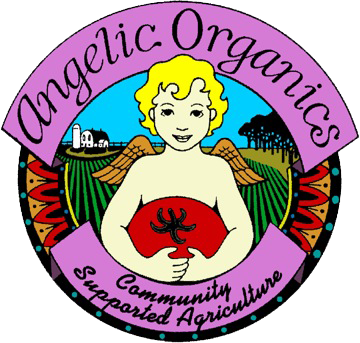
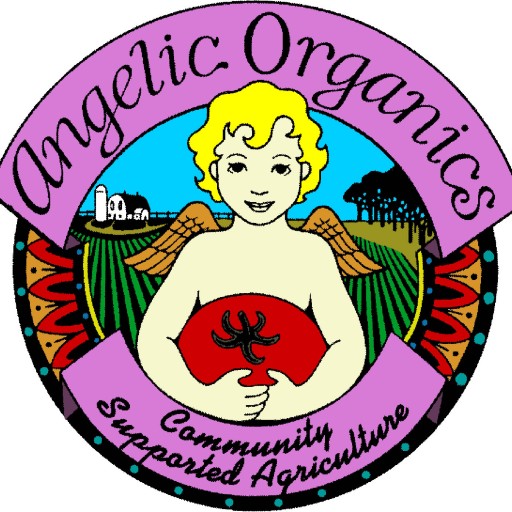
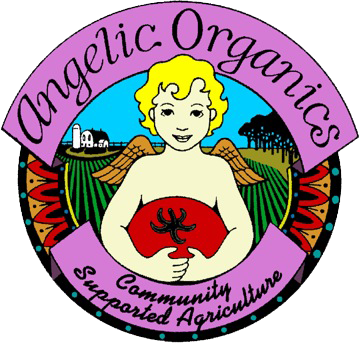
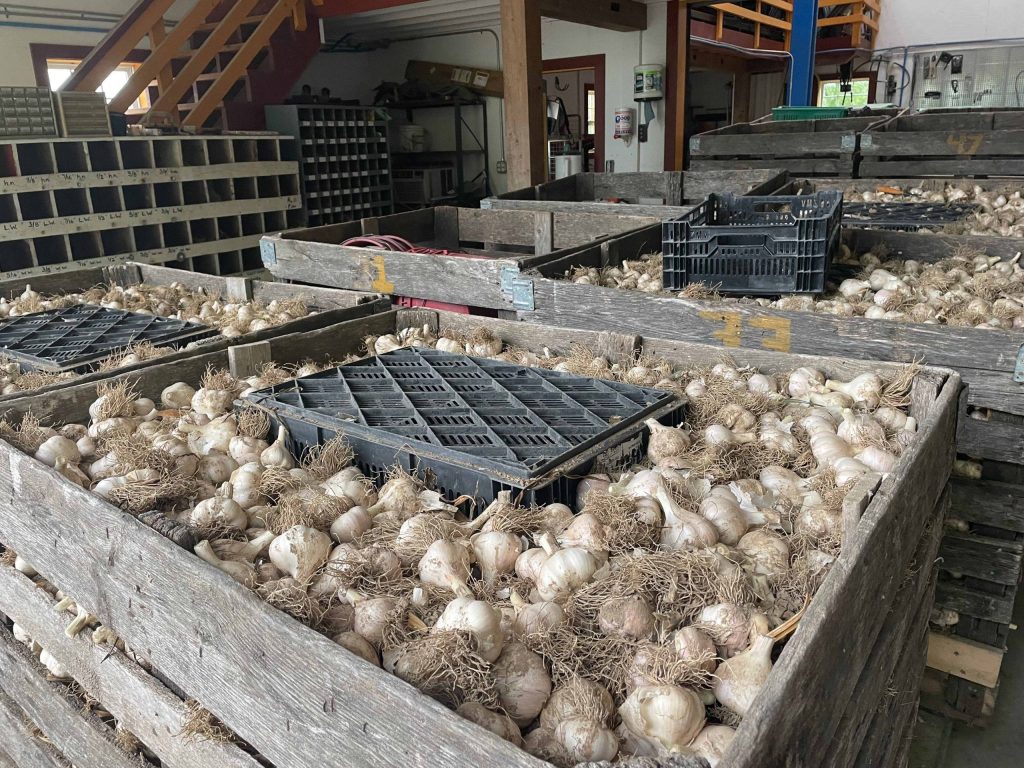
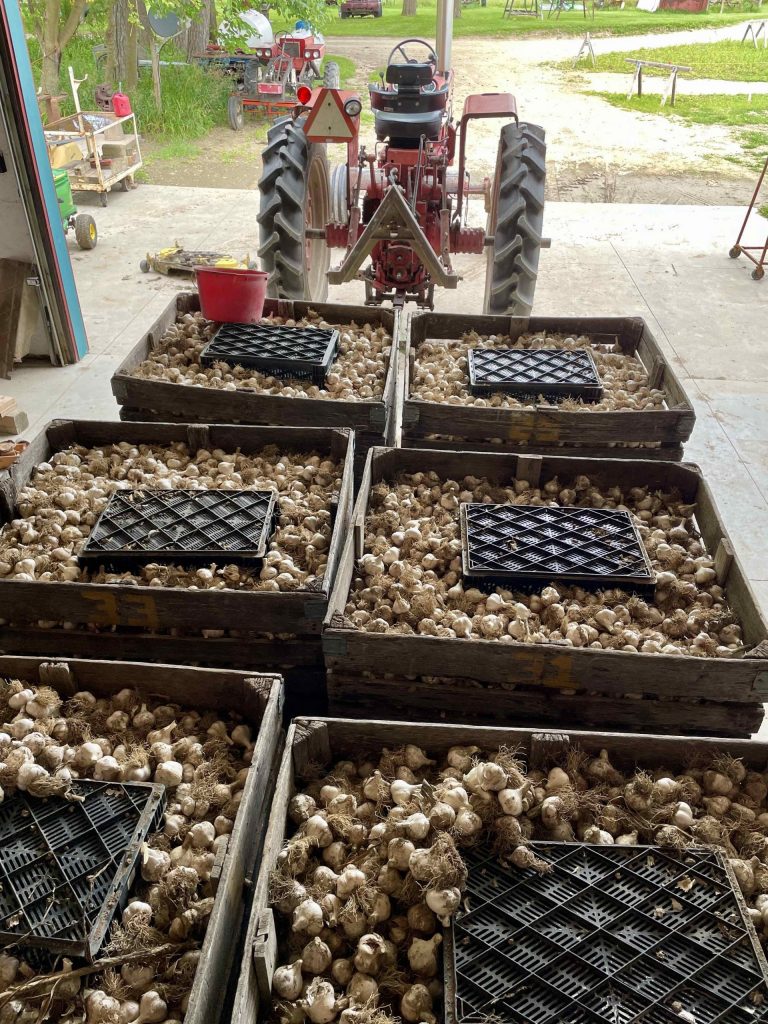
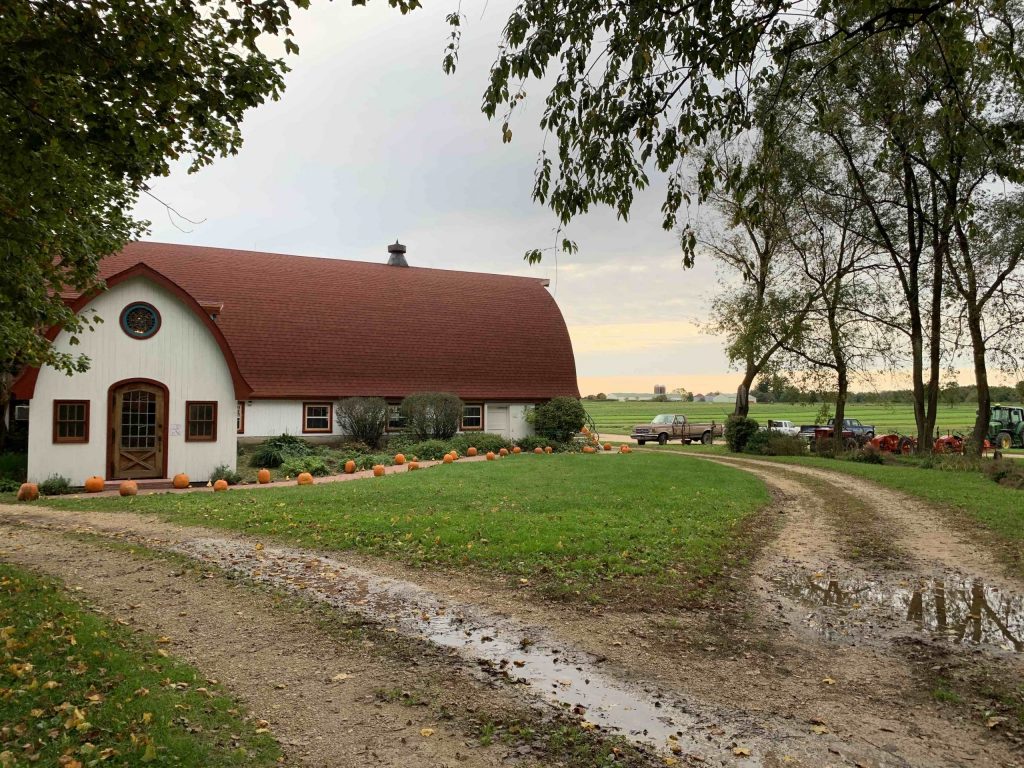
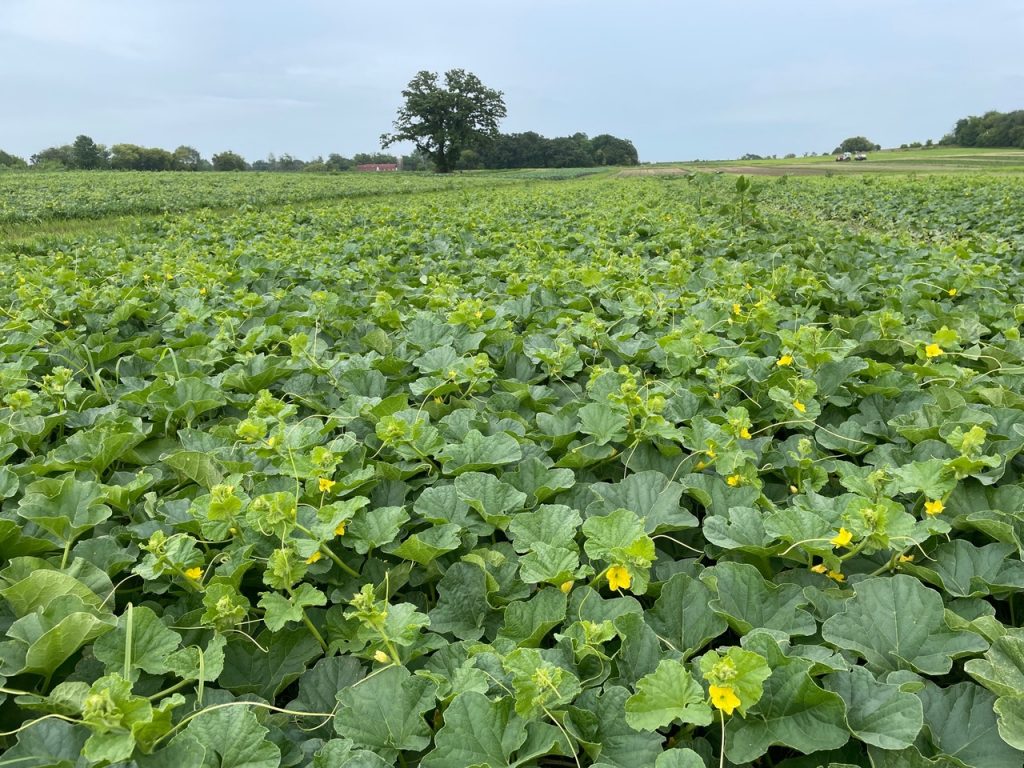
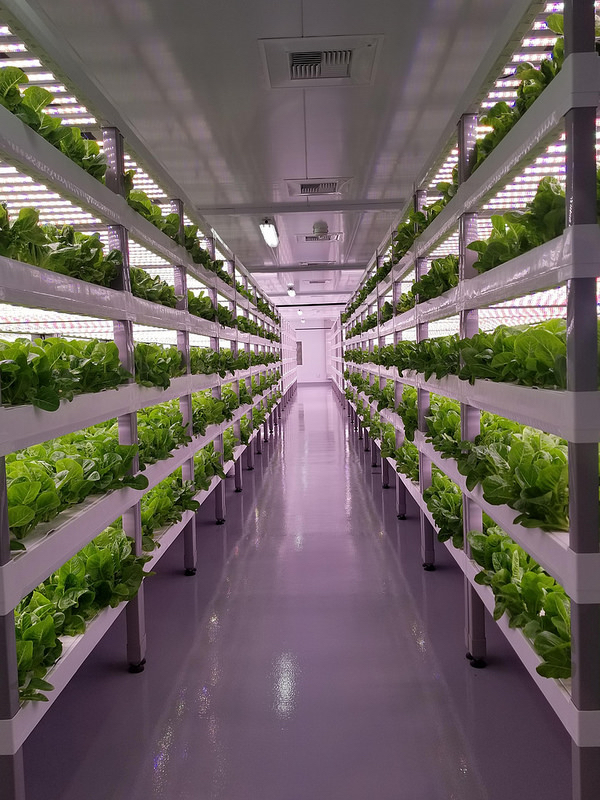
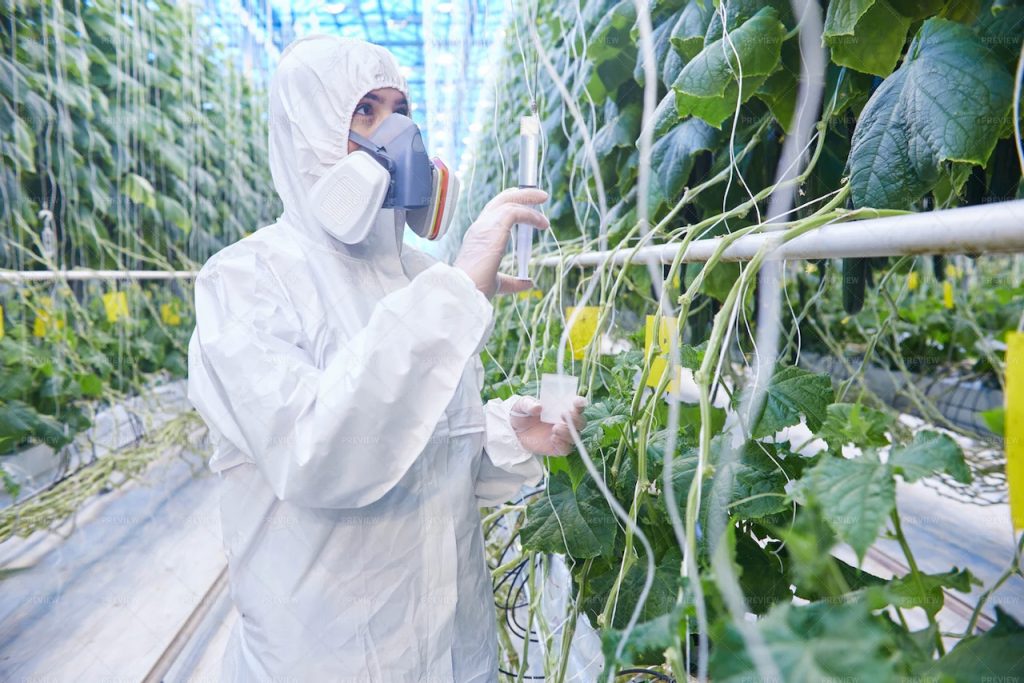
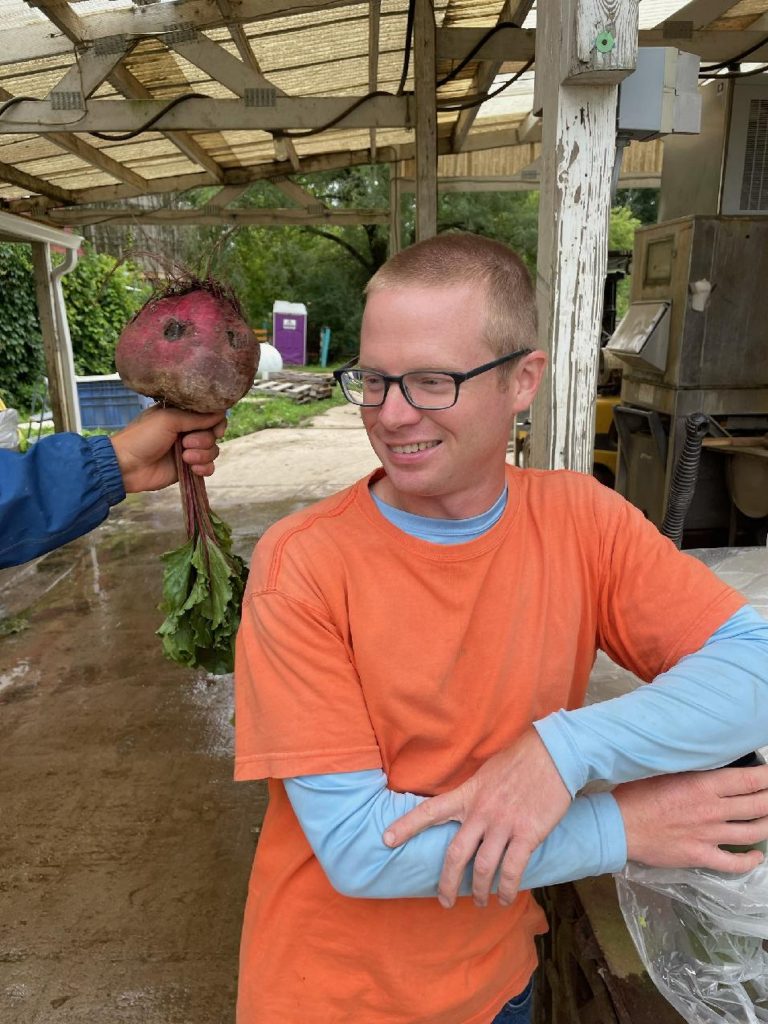
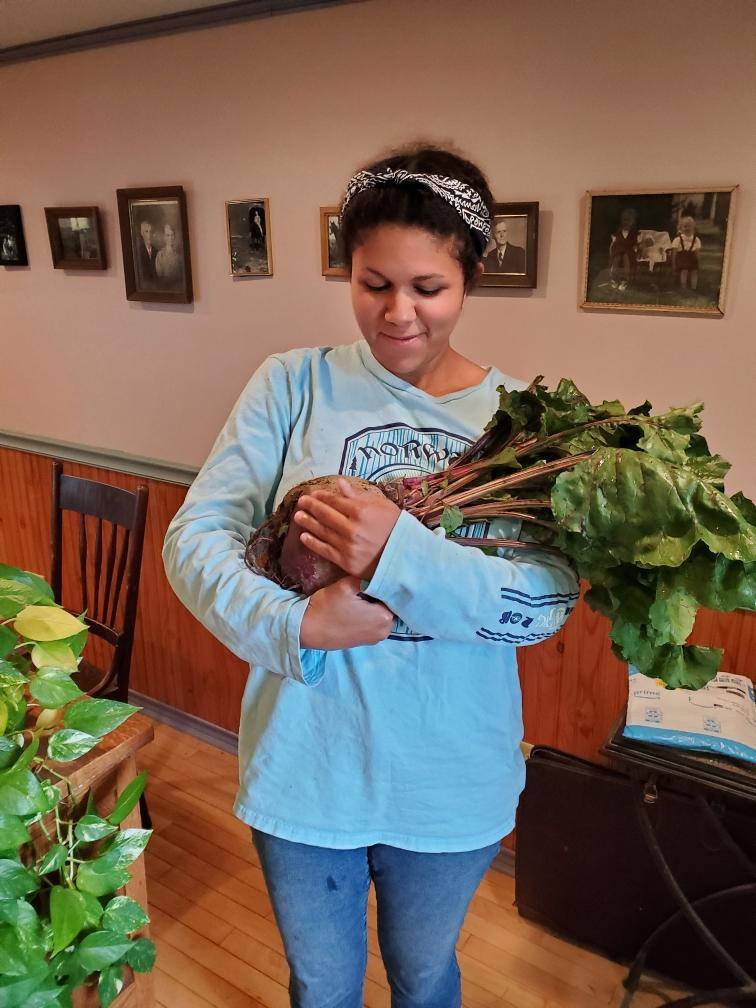
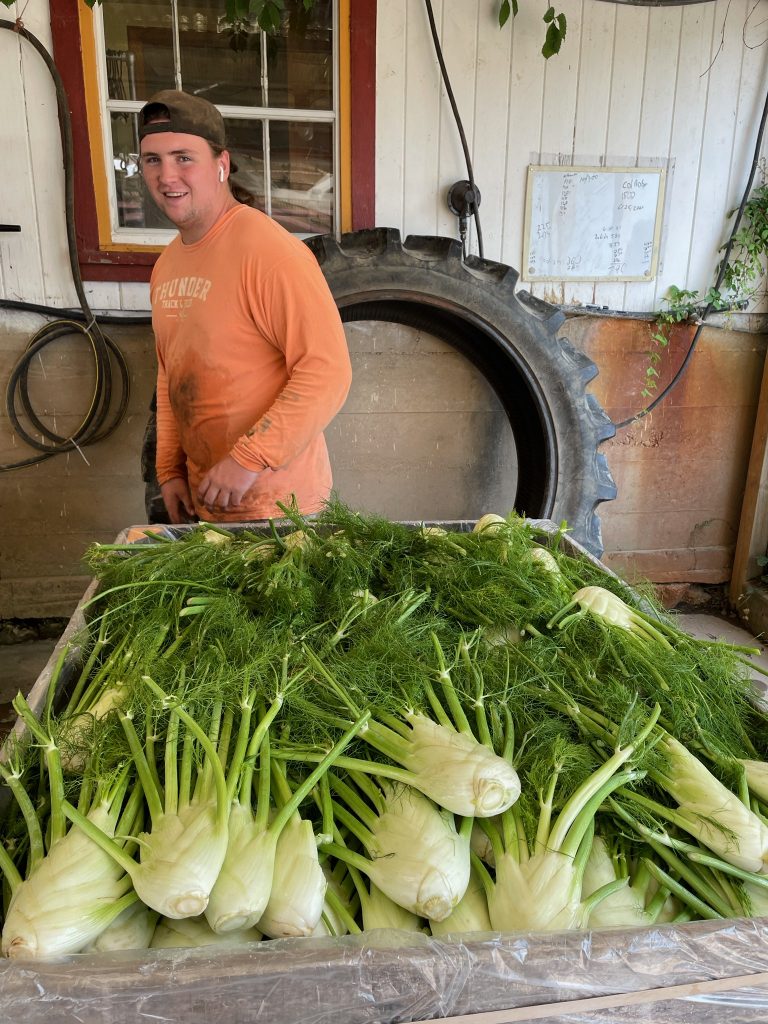
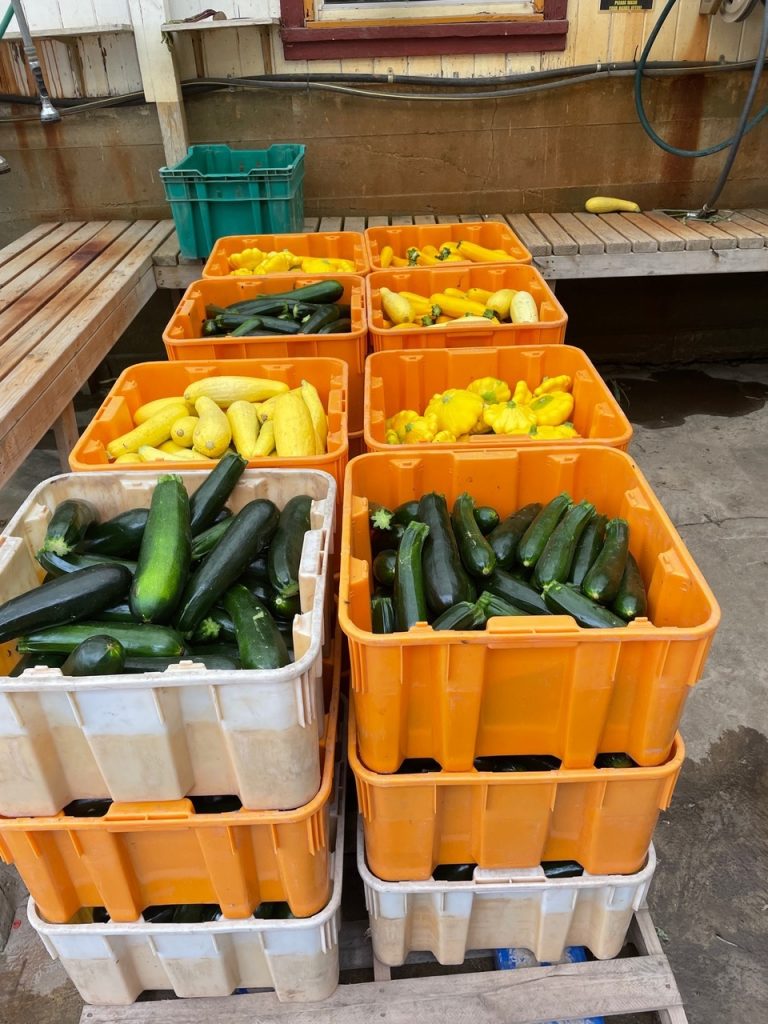
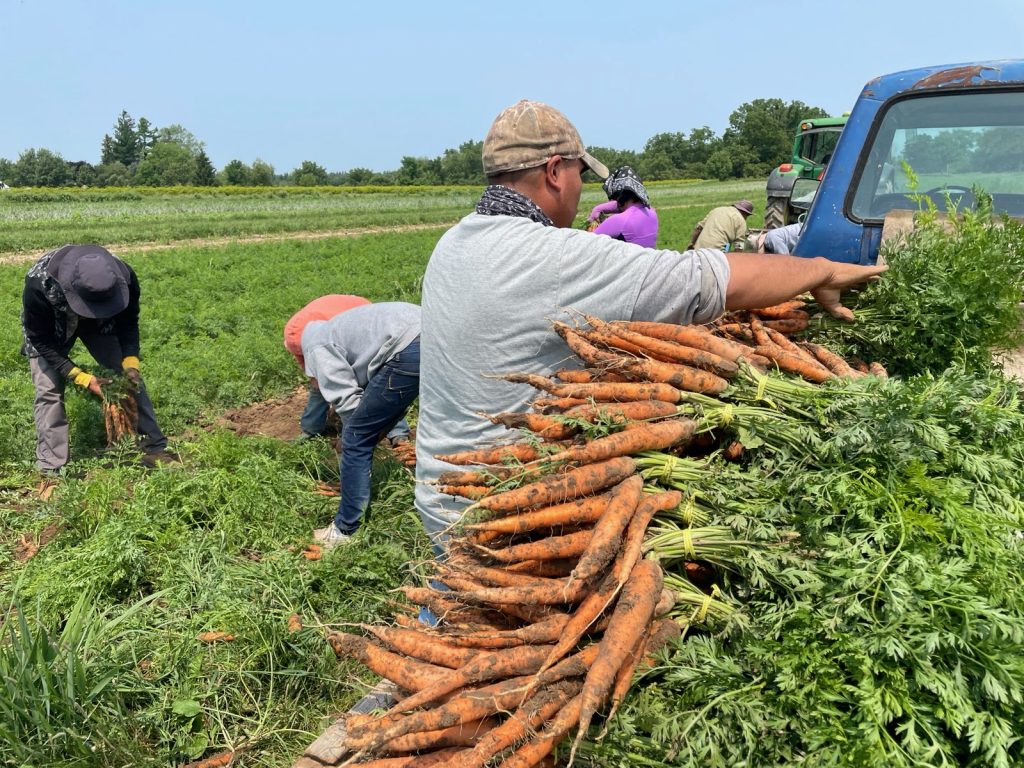
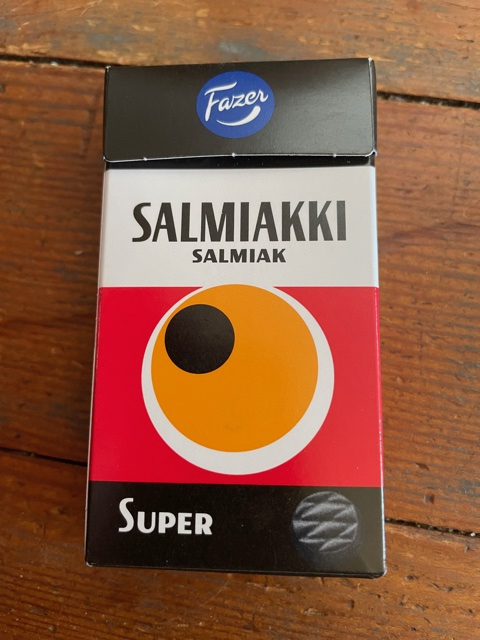
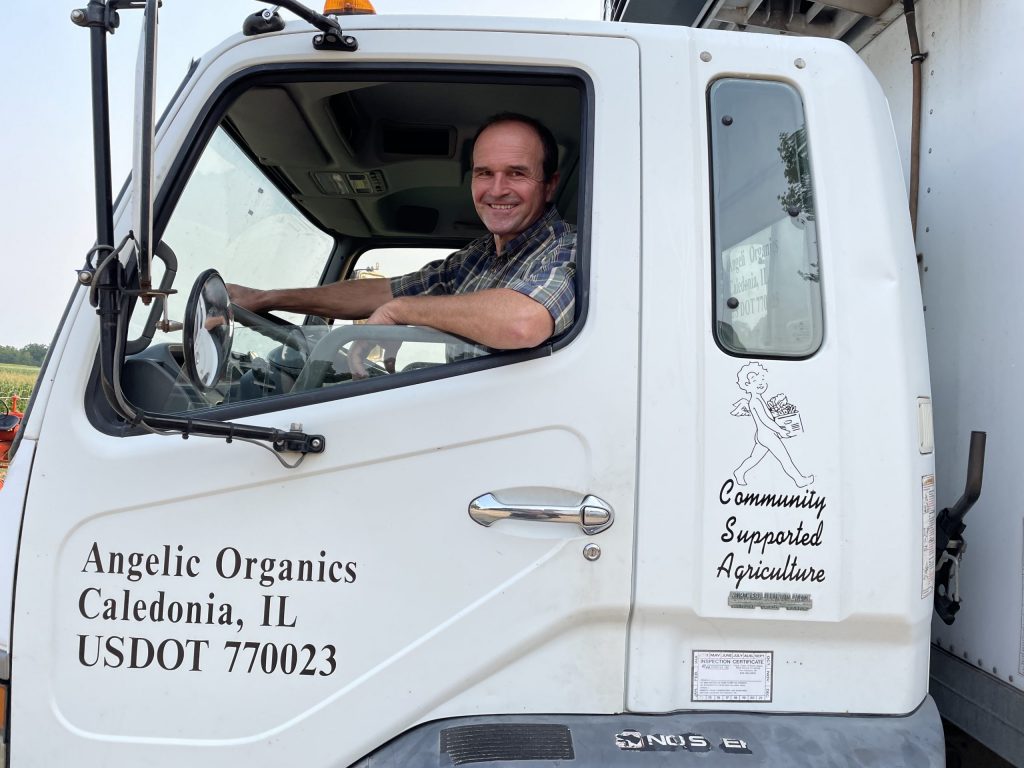

I made the most wonderful pickled beets with some of the large golden beets. They are so sweet and delicious.
What recipe do you use? I’d love to make some!
Thank you!
Seems there is something about our soil that grows such tasty beets. Even people who don’t like beets sometimes like our beets.
I never see the delivery person but I sure appreciate them leaving the vegetables on the porch. I love your garlic so much I planted 4 cloves when you did last fall. 3 came up beautiful! I am drying them now too. We go through a lot of garlic! And my 15 year old son and I agree you have the best tasting lettuce! We are hoping to plan a day to come out and visit or work. He loves to dig dirt and help me garden.
Thanks for your lovely words. Best way to come help is to volunteer for a pack at https://angelicorganics.com/pack-volunteer/. I hope you can both come out for an afternoon.
Dear Farmer John, I was Taggart Siegel’s documentary teacher in Chicago, back in the late 1970s. His first film was heartbreaking: it was about you having to endure your family farm being sold during that time of farms all over the midwest going broke. What a great pleasure today to be dining on your excellent produce and reading your meditations on the challenges a successful and ethical farmer faces, week by week. A story with a happy ending!
I remember your name from conversations with Taggart. This is a lovely message from you. I suppose you know that Taggart did a followup feature documentary on my life and the farm titled The Real Dirt on Farmer John. I have passed your message on to Taggart.
Farmer John,
Regarding hydroponics, aeroponics, vertical farming and the like: in the winter we can’t get our produce from our amazing farmer. When produce is labeled “organic” how can we tell if the origin is from an actual “dirt farmer?”
There is a new certification movement called True Organic, which excludes hydroponics and more: https://www.trueorganic.earth/true-standards. I got a nice visit from one of their representatives last week.